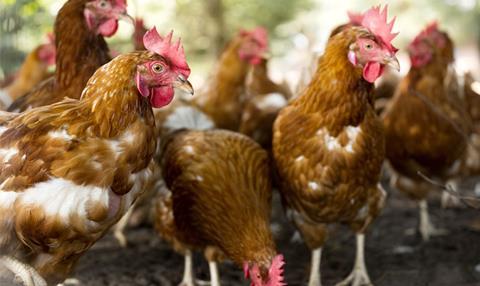Following an AIPZ (Avian Influenza Prevention Zone) which was put in place across Great Britain on Monday 17th October, it is now a legal requirement for all bird keepers to follow strict biosecurity measures.

Due to a change in the risk levels and the increase of avian influenza detections, the chief veterinary officers from England, Scotland and Wales have declared an APIZ to be expanded across the whole country.
Defra said: “Avian influenza circulates naturally in wild birds and when they migrate to the United Kingdom from mainland Europe over the winter, they can spread the disease to poultry and other captive birds.”
The aim of the strict biosecurity measures is to mitigate the risk of the disease spreading amongst poultry and captive birds. Defra also confirmed that keepers with more than 500 birds are required to take extra biosecurity measures.
Financial pressure
In a joint statement the chief veterinary officers for England, Scotland and Wales said: “Bird keepers have faced the largest ever outbreak of avian flu this year and winter brings an even more increased risk to flocks as migratory birds return to the United Kingdom.
“Scrupulous biosecurity and hygiene measures is the best form of defence, which is why we have declared an Avian Influenza Prevention Zone across Great Britain, meaning that all bird keepers must take action to help prevent the disease spreading to more poultry and other domestic birds.”
NFU poultry board chair James Mottershead commented: “The sheer persistence of Avian Influenza over the past year, coupled with soaring energy and feed costs, has put the whole British poultry sector under huge emotional and financial pressure.”
He added that the implementation of heightened biosecurity measures in the form of an Avian Influenza Prevention Zone, and housing measures in the east of England, are “necessary steps.”
This story was originally published on a previous version of the Meat Management website and so there may be some missing images and formatting issues.















